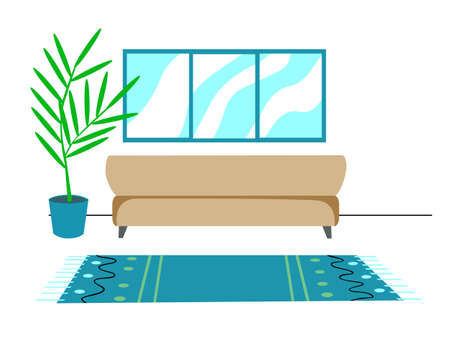Introduction to Shared Living in the UK
Across Britain, house-shares and flatshares have become a prominent aspect of modern living, particularly in bustling cities such as London, Manchester, and Edinburgh. With rising property prices and an increasing demand for urban accommodation, many Britons—students, young professionals, and even families—are embracing communal living arrangements as a practical solution. This trend is not merely a financial necessity; it also fosters a unique sense of community and shared responsibility. However, with multiple individuals sharing kitchens, lounges, bathrooms, and other common spaces, the need for optimising these shared environments becomes crucial. Effective management of communal areas can significantly enhance comfort, harmony, and functionality within a household. Understanding British etiquette and applying practical solutions are key to creating a balanced, respectful atmosphere where everyone feels at home. In this context, optimising shared spaces is not just about efficient use of physical areas but also about nurturing positive relationships and upholding the unwritten codes of British communal living.
2. Understanding British Etiquette in Shared Spaces
Living in a house-share or flatshare in the UK comes with its own unique set of expectations and unwritten rules. British culture places a high value on politeness, respect for privacy, and consideration for others—traits that are especially important when sharing a home. Understanding these cultural nuances can make all the difference between harmonious living and potential conflict.
Respecting Privacy and Personal Boundaries
One of the cardinal rules in British shared homes is respecting each others personal space. It is considered good manners to knock before entering someone else’s room, keep noise levels reasonable, and avoid borrowing belongings without permission. The concept of ‘personal space’ extends to shared areas as well; leaving personal items in communal spaces for extended periods may be frowned upon.
Common Unwritten Rules in UK House-Shares
| Rule | Description |
|---|---|
| Knocking Before Entering | Always knock before entering another person’s room, even if the door is open. |
| Quiet Hours | Keep noise down during late evenings and early mornings (typically after 10pm). |
| Shared Cleaning | Everyone is expected to do their fair share of cleaning, often by rota. |
| Fridge Etiquette | Don’t eat others’ food without asking; label your items if needed. |
| Bathroom Courtesy | Leave the bathroom clean and tidy for the next person. |
The Art of British Politeness
The British are known for indirect communication and using polite language. Phrases like “Would you mind…”, “Could we possibly…”, or “I was just wondering if…” are commonly used to address issues gently. Direct confrontation is usually avoided in favour of subtle hints or friendly reminders, which helps maintain a cordial atmosphere in shared living situations.
Navigating Typical Boundaries
Understanding boundaries also means being sensitive to cultural differences within a diverse house-share. While most Britons expect regular cleaning and shared responsibilities, attitudes towards guests, parties, or overnight visitors may vary. It’s good practice to agree on house rules together at the outset to prevent misunderstandings and foster mutual respect.

3. Practical Solutions for Shared Kitchens and Bathrooms
Living in a house-share or flatshare in the UK means that kitchens and bathrooms quickly become high-traffic zones. To maintain harmony and hygiene, it’s essential to adopt practical strategies tailored for British homes.
Establishing a Rota System
One of the most effective ways to keep shared spaces tidy is by introducing a rota system. Create a weekly schedule for cleaning tasks, such as wiping down kitchen surfaces, mopping floors, or scrubbing bathroom tiles. Assign responsibilities fairly among housemates—rotas not only prevent disputes but also ensure no one person bears the brunt of the chores. Display the rota clearly on the fridge or noticeboard, and encourage everyone to tick off completed tasks for accountability.
Choosing the Right Cleaning Products
Opt for locally available cleaning products that are both effective and eco-friendly. In the UK, brands like Ecover, Method, and Astonish offer affordable solutions that cut through grime without harsh chemicals. For stubborn limescale—a common issue due to hard water in many British regions—use white vinegar or dedicated descalers. Stock up on multipurpose sprays and microfibre cloths so everyone has easy access when needed.
Maximising Storage in Compact Spaces
British kitchens and bathrooms are often modestly sized, making smart storage essential. Use stackable containers or baskets for dry goods and cleaning supplies; label them clearly so items don’t go missing or get mixed up. Over-the-door hooks can be a game-changer for towels and dressing gowns. If you’re tight on cupboard space, invest in shelf risers or hanging organisers to make use of every inch. Encourage housemates to keep personal toiletries in caddies or baskets to avoid cluttering shared surfaces.
Regular Maintenance Checks
Stay ahead of wear and tear by scheduling monthly inspections of appliances, taps, and extractor fans. Promptly report any issues—such as leaky sinks or faulty hobs—to your landlord or letting agency before they escalate into bigger problems. Not only does this protect your deposit, but it also ensures everyone enjoys a functional, pleasant living environment.
Top Tip:
Avoid passive-aggressive notes by holding quick household meetings if standards slip—open communication is key to keeping shared spaces in tip-top condition!
4. Optimising Communal Living Rooms and Corridors
Practical Layouts for British House-Shares
When it comes to shared living rooms and corridors, thoughtful layout is essential for both comfort and efficiency. In British homes, communal areas often serve as the heart of social interaction, while corridors act as essential connectors. To maximise these spaces:
- Living Rooms: Arrange seating in a circular or semi-circular fashion to encourage conversation. Consider a central coffee table for practicality, while leaving enough space to walk around comfortably.
- Corridors: Keep passageways clear of clutter; opt for slimline shoe racks or coat stands at entry points to prevent tripping hazards.
Furniture Choices: Balancing Tradition and Functionality
British taste favours classic yet practical furniture. Choose durable, easy-to-clean fabrics and materials to withstand regular use by multiple occupants. Consider multi-functional pieces such as storage ottomans or fold-away chairs that can be tucked away when not in use.
| Furniture Type | Recommended Style | Key Benefit |
|---|---|---|
| Sofas & Armchairs | Tweed or neutral-toned fabric | Traditional look, easy maintenance |
| Coffee Tables | Wood with rounded edges | Safe, blends with most decors |
| Shoe Racks/Coat Stands | Slimline metal or oak | Saves space, keeps corridor tidy |
| Storage Ottomans | Padded, neutral tones | Doubles as seating and storage |
Maintenance Tips for Shared Spaces
Maintaining communal living rooms and corridors is crucial for harmonious house-sharing. Create a cleaning rota so everyone contributes fairly. Use washable throws on sofas and armchairs to protect upholstery—these can be easily laundered if spills occur during tea breaks or gatherings.
Quick Maintenance Checklist:
- Vacuum carpets weekly to remove dust and allergens.
- Wipe down surfaces regularly with gentle cleaners to maintain appearance and hygiene.
- Check light bulbs in corridors frequently—well-lit passages are safer and more welcoming.
- Avoid over-decorating; minimal, tasteful touches like framed prints or a vase of fresh flowers help keep the British charm without cluttering the space.
Respecting Etiquette in Shared Spaces
Finally, always be mindful of others schedules and preferences. Keep noise levels considerate, especially in the evenings. If rearranging furniture, discuss changes with your housemates first—this fosters respect and ensures everyone feels comfortable in their shared home environment.
5. Managing Shared Responsibilities and Conflicts
Setting the Ground Rules: Clear Communication from Day One
One of the cornerstones of harmonious house-sharing in the UK is establishing clear expectations early on. It’s a good British custom to organise a house meeting shortly after moving in. Use this time to discuss cleaning rotas, quiet hours, shared bills, and guests. Drafting a simple agreement or using a whiteboard in the communal area can help clarify who is responsible for what, and when. This proactive approach nips many potential disputes in the bud, reducing awkwardness down the line.
British Politeness: The Art of Addressing Issues
When issues do arise, a gentle approach is vital. In keeping with British etiquette, avoid direct confrontation or harsh words. Instead, use phrases like “I wonder if we could…” or “Would you mind if…”, which are less likely to cause offence. If someone leaves dishes unwashed or forgets to buy loo roll, mention it casually over a cuppa rather than sending accusatory messages. This maintains a friendly atmosphere while getting your point across.
The Role of Regular Check-ins
Scheduling regular check-ins—monthly or quarterly—can keep everyone on the same page. These informal catch-ups provide space for feedback and adjustments without anyone feeling singled out. Encourage each housemate to share their thoughts and listen actively. This habit can prevent small annoyances from escalating into bigger conflicts.
Dealing with Persistent Problems
If issues persist despite polite reminders, consider introducing a mediation system within the house-share. You might take turns as “house manager” or ask an impartial friend to join difficult conversations. For trickier situations, such as disagreements over money or noise, referencing your tenancy agreement or consulting your landlord may be necessary—always keeping communication civil and solutions-focused.
Maintaining Positive Relationships
Above all, remember that living together requires mutual respect and compromise. A little British humour can go a long way in diffusing tension—making light of minor mishaps helps maintain goodwill. Celebrate successes together too; whether it’s completing a deep clean or just enjoying a takeaway night in front of the telly, these moments reinforce camaraderie and make the shared living experience more enjoyable for everyone.
6. Sustainable and Cost-Effective Upkeep
Maintaining shared spaces in house-shares and flatshares need not be expensive or wasteful. By adopting eco-friendly habits and budget-conscious strategies, everyone can contribute to a cleaner, greener, and more harmonious home. Embracing sustainable practices is also in keeping with the British commitment to environmental responsibility, which is reflected in nationwide recycling programmes and energy-saving initiatives.
Eco-Friendly Cleaning Solutions
Switching to environmentally safe cleaning products reduces harsh chemical residues and supports overall wellbeing. Consider making homemade cleaners using vinegar, bicarbonate of soda, and lemon juice—staples found in most British kitchens. Shared purchases of concentrated cleaning products in bulk can save money while cutting down on plastic packaging.
Rubbish Sorting and Recycling
Recycling is second nature in many UK households. Set up clearly labelled bins for paper, plastics, glass, and food waste in communal areas. Remind flatmates about local council collection days and the importance of rinsing recyclables before disposal. This collective effort helps reduce landfill waste and keeps shared spaces tidy.
Energy-Saving Practices
To keep bills manageable, adopt simple British energy-saving habits: turn off lights when leaving a room, unplug appliances when not in use, and make the most of natural daylight. Draught-proofing windows and doors with affordable solutions such as draught excluders can make a noticeable difference during colder months. Encouraging everyone to share washing machine loads or air-dry laundry instead of using tumble dryers is both cost-effective and better for the environment.
Repair, Reuse, Repurpose
Before replacing broken items in shared areas, consider whether they can be repaired or repurposed. A bit of DIY—a much-loved British pastime—not only saves money but also fosters a sense of collective achievement. Upcycling old furniture or swapping unwanted household items with each other are great ways to minimise waste while refreshing shared spaces.
Community Initiatives
Take advantage of local British community schemes such as tool libraries or swap shops for occasional maintenance needs. Joining neighbourhood forums can also connect housemates with free or low-cost resources for sustainable upkeep.
By prioritising sustainability alongside affordability, house-share residents can enjoy well-kept communal areas that reflect both environmental stewardship and good old-fashioned British practicality.


